5 Health Food Fake-Outs
Think virtuous packaging means you're eating right? Think again.
By Karen Asp
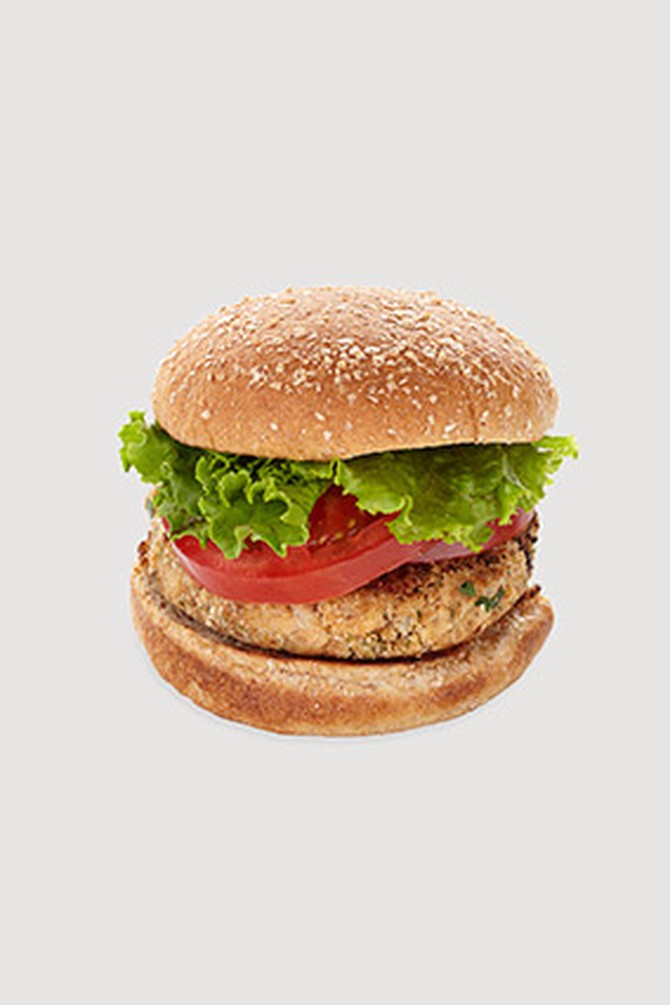
Photo: Alison Gootee/Studio D
You can't always judge a food by its label. A low-fat option might be loaded with unhealthy oils, while veggie offerings can include unhealthy amounts of sugar and salt. Here, the scoop on five supposedly good-for-you foods and what you're better off eating.
Reality Check
We think of turkey as healthier than red meat because it has less saturated fat, but in terms of total fat and calories, they can be virtually identical. Unless the patty is made with 93 percent lean meat, steer clear, says dietitian Kate Geagan, author of Go Green, Get Lean.
Smart Swap
Choose wild salmon burgers, which are full of omega-3 fatty acids to benefit your brain and heart and also contain vitamin D. Look for Trident Seafoods frozen salmon burgers in your grocer's freezer aisle.
Turkey Burger
Reality Check
We think of turkey as healthier than red meat because it has less saturated fat, but in terms of total fat and calories, they can be virtually identical. Unless the patty is made with 93 percent lean meat, steer clear, says dietitian Kate Geagan, author of Go Green, Get Lean.
Smart Swap
Choose wild salmon burgers, which are full of omega-3 fatty acids to benefit your brain and heart and also contain vitamin D. Look for Trident Seafoods frozen salmon burgers in your grocer's freezer aisle.
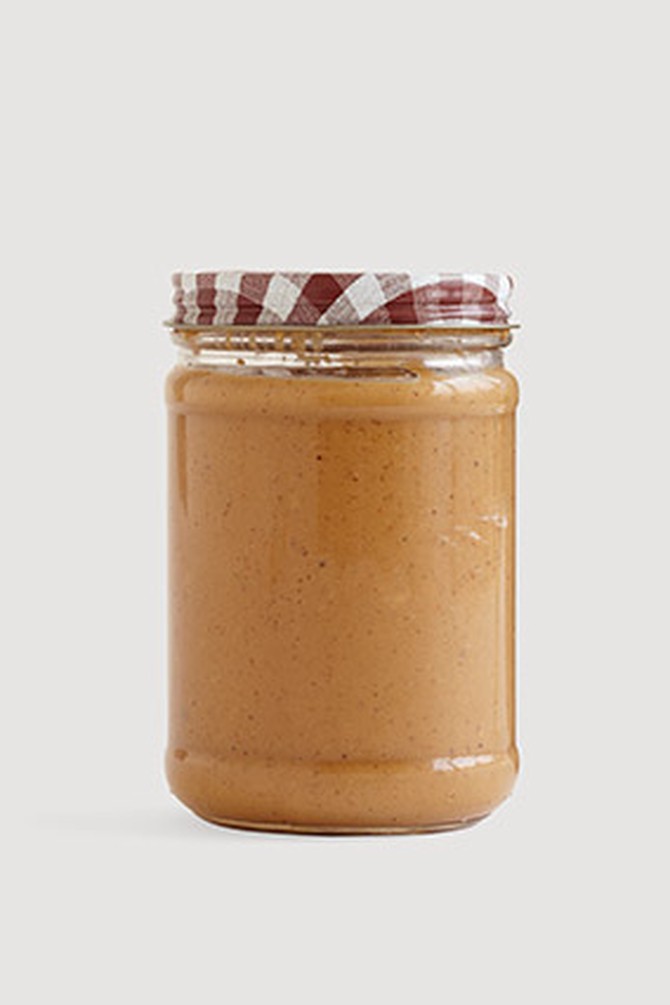
Photo: Alison Gootee/Studio D
Reduced-Fat Peanut Butter
Reality Check
Reduced-fat peanut butter spreads can be as little as 60 percent peanut. (By law, products labeled "peanut butter" in the U.S. must be at least 90 percent peanut.) Nutritionally void ingredients like corn syrup solids, sugar, and unhealthy oils make up the difference.
Smart Swap
Pick a full-fat option labeled "natural," or look for a layer of oil at the top of the jar. Check out the ingredients, too, which should list only two or three items, with peanuts first.
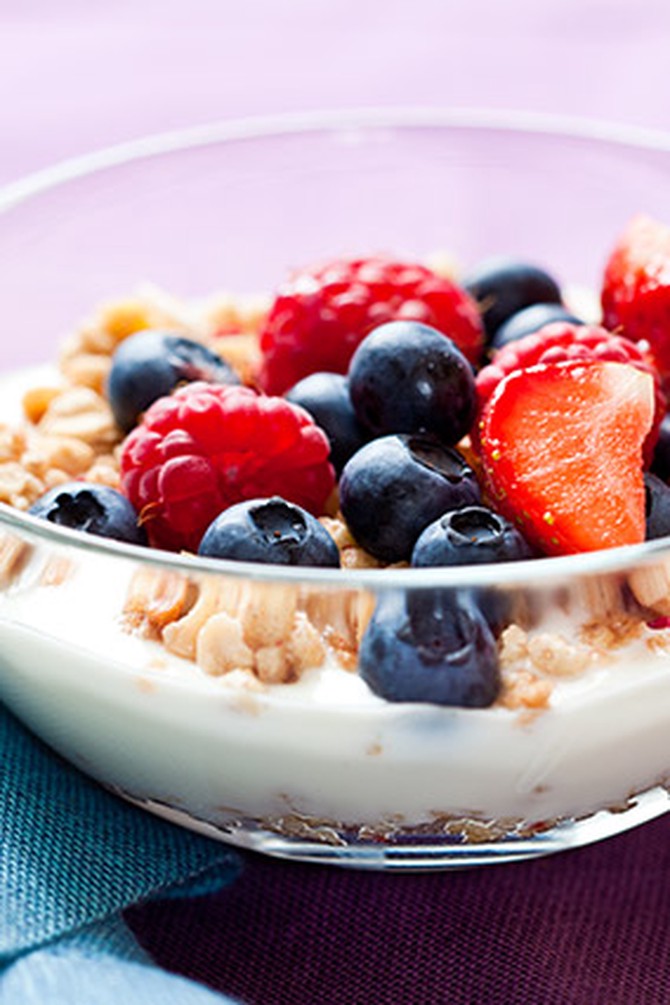
Photo: Thinkstock
Granola
Reality Check
"Most granolas are packed with ingredients like nuts and oils that send the calorie count soaring," says dietitian Brooke Joanna Benlifer. And since they often contain added dried fruit and sweeteners, their sugar content can be high, too.
Smart Swap
Try multigrain Cheerios, which are lower in fat and sugar and contain 110 calories per cup. If it's too hard to cut out granola entirely, be sure to use it sparingly.
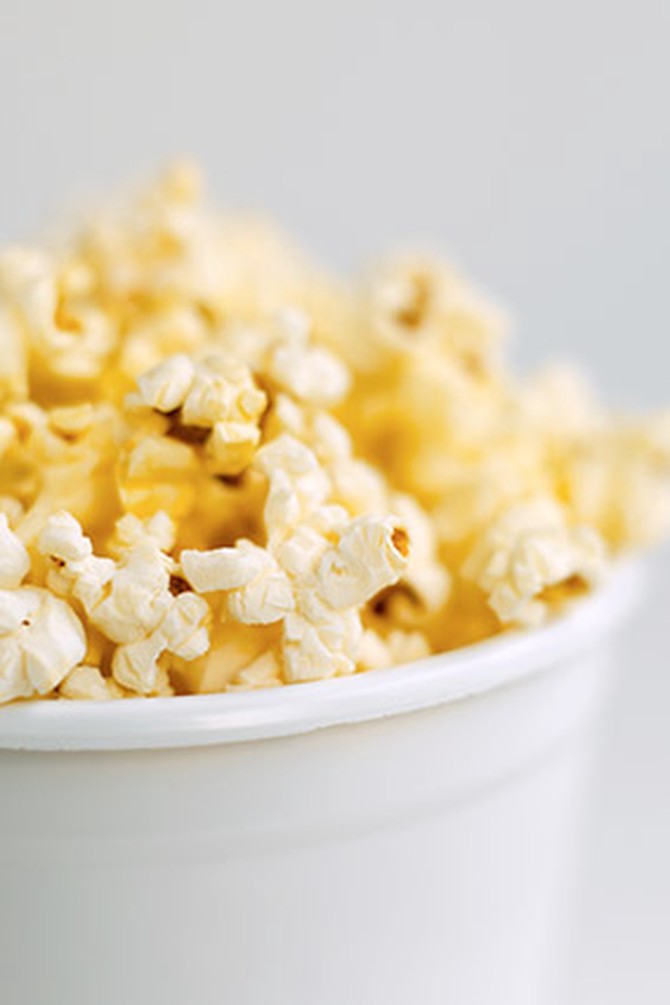
Photo: Thinkstock
Veggie Chips
Whether they're made from whole root vegetables or have just a dusting of dried spinach, veggie chips are no substitute for actual vegetables. Plus, they're often fried and salted, meaning they could be loaded with calories and sodium, Geagan says.
Smart Swap
Dig into air-popped popcorn, which has about 30 calories per cup and a higher concentration of antioxidants than some fruit. Still craving veggie chips? Choose a brand with at least two grams of fiber per serving.
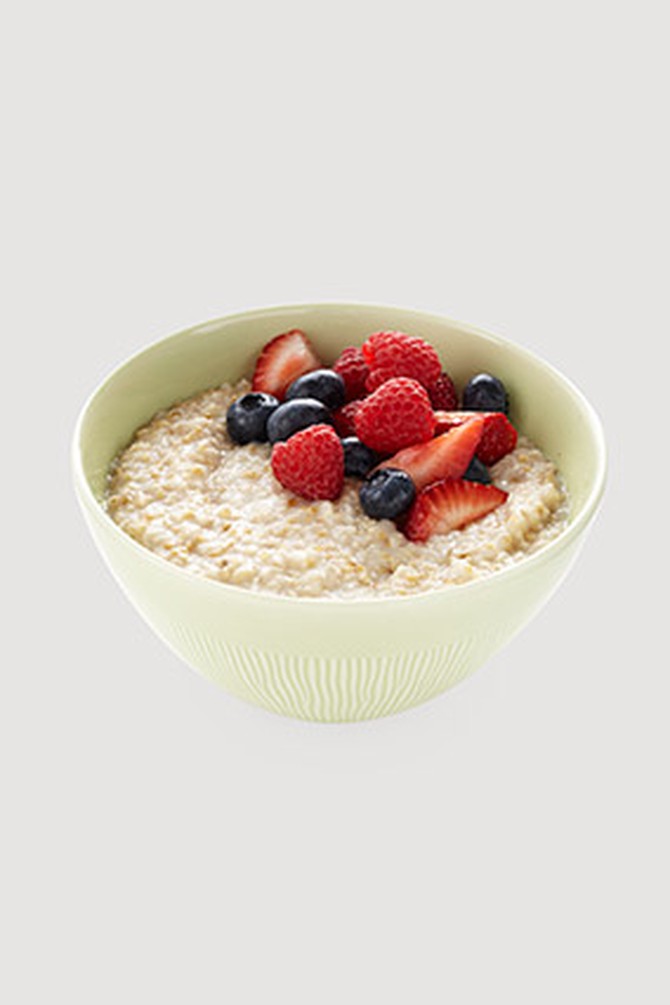
Photo: Alison Gootee/Studio D
Instant Oatmeal
Reality Check
"Instant oats have been heavily processed, so there's not as much fiber to satisfy you," says Benlifer. They also have a higher glycemic index than other oats, making your blood sugar spike and then crash, which can leave you hungry soon after eating.
Smart Swap
Switch to steel-cut or "old-fashioned" oats with at least four grams of fiber per serving to stay satiated longer and help stabilize your blood sugar levels. For even more fiber, add berries or almonds.
Next: Perfect snacks for the anxious, the stressed and the tired
From the November 2012 issue of O, The Oprah Magazine
As a reminder, always consult your doctor for medical advice and treatment before starting any program.

